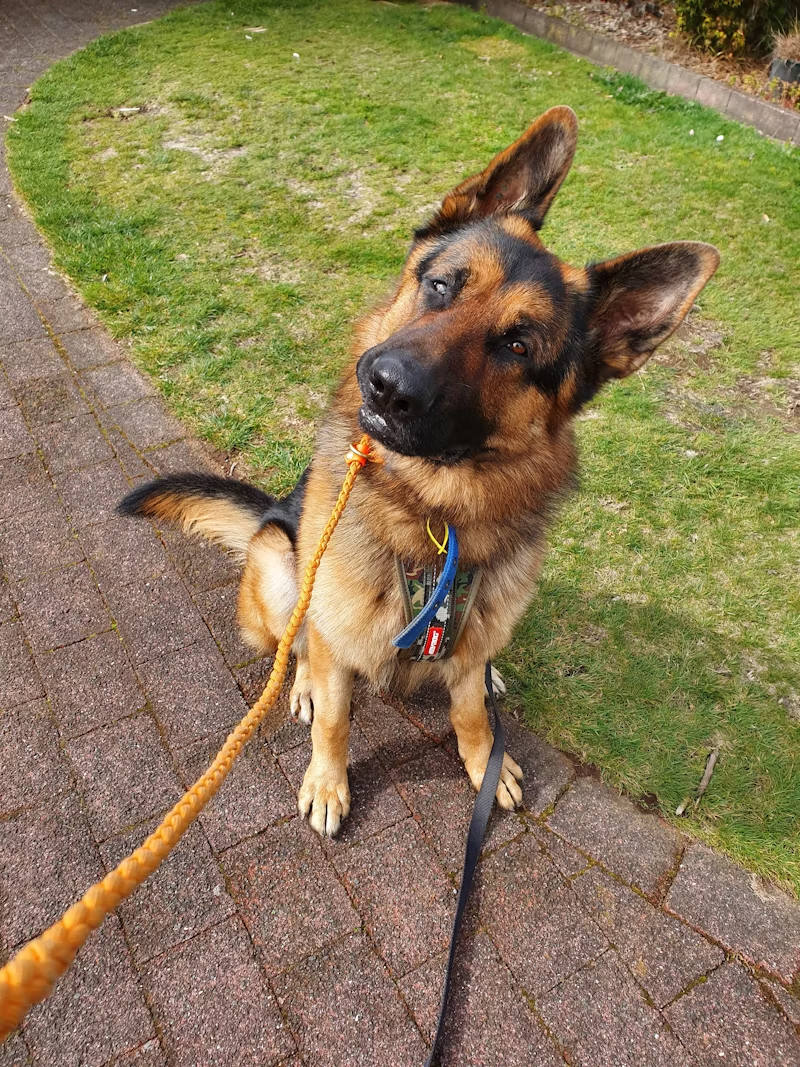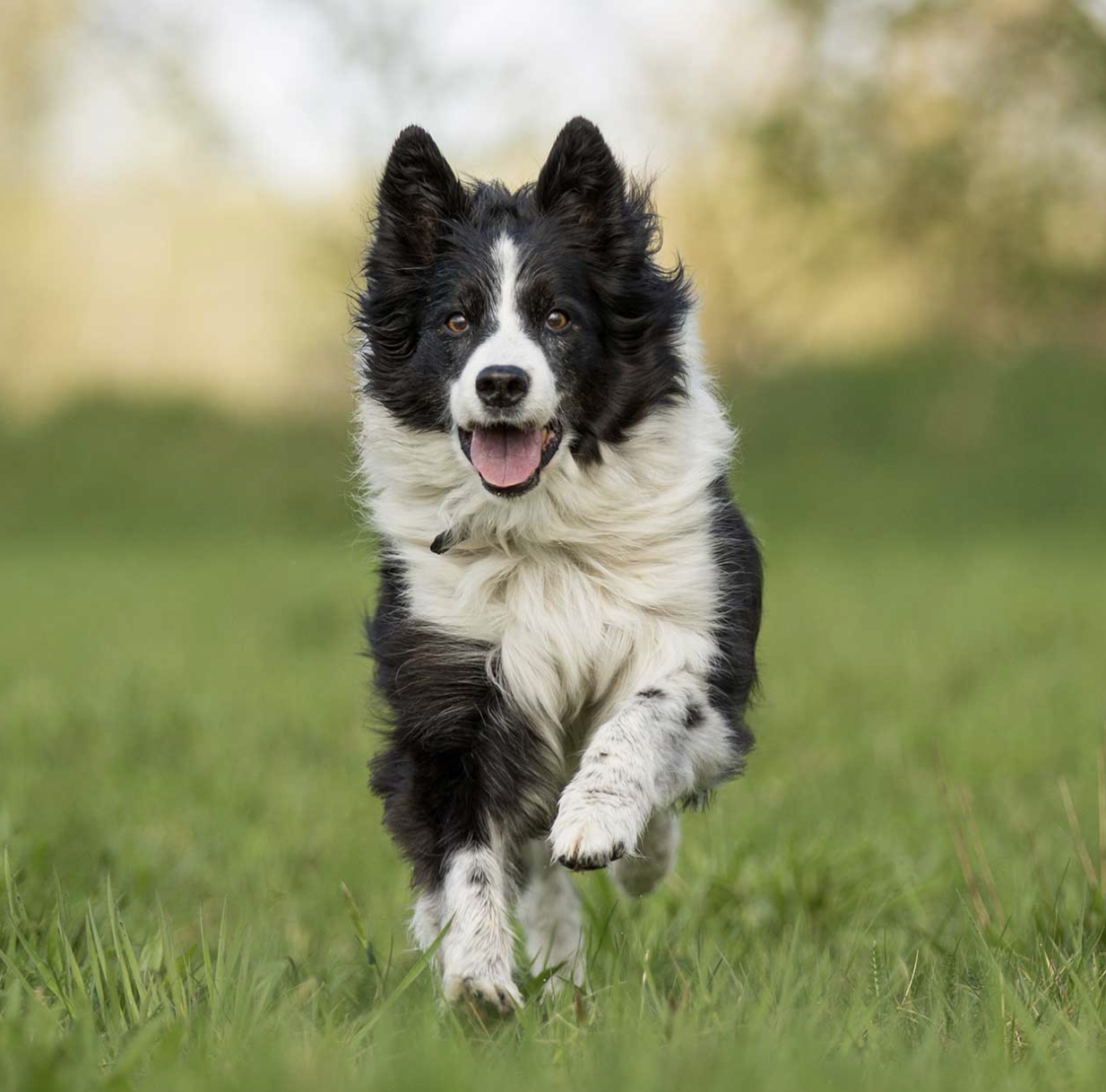- Why Choose a Psychiatric Assistance Dog for Mental Wellness and Productivity?
- Top 10 Psychiatric Assistance Dog Breeds for Mental Wellness and Productivity
- Choosing the Right Psychiatric Assistance Dog Breed for Your Needs
- Training Essentials for Psychiatric Assistance Dogs
- Conclusion: Finding Your Ideal Psychiatric Assistance Dog Breed
In recent years, psychiatric assistance dogs have gained recognition for the profound support they offer people managing mental health challenges. Unlike general therapy dogs or emotional support animals, psychiatric assistance dogs are specifically trained to assist individuals with particular tasks related to mental health, such as helping navigate anxiety, depression, PTSD, or other conditions. These dogs offer more than just comfort; they bring companionship, structure, and support that can significantly enhance both mental wellness and productivity.
Whether you’re looking for a loyal friend to help manage daily stress, boost your productivity, or simply provide grounding support, certain dog breeds are especially well-suited for this role. Here’s a detailed look at the top 10 psychiatric assistance dog breeds, chosen for their temperament, trainability, and ability to create a calming, supportive presence.
Why Choose a Psychiatric Assistance Dog for Mental Wellness and Productivity?
Psychiatric assistance dogs offer unique benefits that extend beyond emotional support, playing a significant role in enhancing daily productivity. Here’s a closer look at how these dogs support mental health and help their owners lead productive lives:
• Emotional Balance: These dogs help regulate mood, reduce stress, and alleviate symptoms of mental health conditions, promoting an emotionally balanced state that improves focus and resilience.
• Routine Structure: Caring for a dog introduces a steady routine that promotes productivity and well-being. Knowing a pet relies on their care encourages owners to create a structured, healthy daily schedule.
• Stress Relief: Dogs can sense when their owner is stressed and provide immediate companionship or engage in tasks that help ground and comfort them. This support helps the owner focus and work more effectively.
• Physical Activity Motivation: Regular walks and playtime promote physical exercise, improving mental clarity and mood. For people in high-stress environments, this activity provides a refreshing break that enhances overall productivity.
Key Traits of an Ideal Psychiatric Assistance Dog Breed
Not all dogs are suited to psychiatric assistance work. The following traits are essential when selecting a breed to ensure effective support for mental wellness and productivity:
• Trainability: The dog should be responsive to commands, adaptable to specific training, and attentive to its owner’s needs.
• Calm Temperament: Psychiatric assistance dogs should have a calm, non-aggressive temperament, offering a stable presence that soothes rather than excites.
• Sensitivity to Emotions: Many psychiatric assistance dogs are naturally intuitive, able to sense emotional shifts in their owners and respond accordingly.
• Attachment and Loyalty: A strong, dependable bond is crucial, as these dogs must be attentive to their owners’ needs and provide reliable support.
These traits guide our selection of breeds, each offering unique strengths and support that can be tailored to individual needs and lifestyles.
Top 10 Psychiatric Assistance Dog Breeds for Mental Wellness and Productivity
Each of these breeds possesses unique qualities that make them exceptional psychiatric assistance dogs. Here’s a closer look at the top breeds:
1. Labrador Retriever

• Overview: Labs are friendly, adaptable, and affectionate. They’re highly popular for their warm nature and consistent temperament.
• Suitability for Assistance: Labrador Retrievers are highly trainable, gentle, and very loyal, making them ideal for individuals who need emotional stability and a reliable companion.
• Unique Qualities: Known for their strong bonding ability, Labs can bring calmness and support, especially for those dealing with anxiety or depression.
2. Golden Retriever

• Overview: Golden Retrievers are known for their intelligence, gentle demeanor, and loyalty.
• Suitability for Assistance: Golden Retrievers are incredibly intuitive and sensitive to emotions, which makes them excellent for people with anxiety, PTSD, or other mental health conditions.
• Unique Qualities: Their joyful nature helps create a positive environment, which can boost productivity and enhance the overall atmosphere.
3. Poodle (Standard and Miniature)

• Overview: Poodles are intelligent, easily trainable, and sensitive to emotional shifts in people.
• Suitability for Assistance: Known for their hypoallergenic coat, they’re suitable for individuals with allergies. They’re also quick learners and adapt well to various settings.
• Unique Qualities: Poodles excel at interpreting emotional cues, making them excellent companions for those needing a quick-to-learn, adaptable support dog.
4. Cavalier King Charles Spaniel

• Overview: This breed is affectionate, adaptable, and calm. Their small size makes them ideal for apartments or limited spaces.
• Suitability for Assistance: Their natural empathy makes them great for close companionship, particularly beneficial for individuals with anxiety or those who need a calming presence.
• Unique Qualities: Cavaliers love to be close to their owners, providing consistent support in both personal and professional settings.
5. German Shepherd

• Overview: German Shepherds are loyal, protective, and highly trainable. They’re often used for a variety of service roles.
• Suitability for Assistance: German Shepherds are known for their steadfast loyalty and protective nature, providing a strong sense of security.
• Unique Qualities: They’re well-suited for individuals who benefit from structured routines and feel comforted by a dog with a calm, stabilizing presence.
6. Border Collie

• Overview: Border Collies are highly intelligent, energetic, and attentive. They thrive in active environments.
• Suitability for Assistance: Known for their sensitivity and intelligence, Border Collies are ideal for individuals who benefit from a structured, active lifestyle.
• Unique Qualities: Their strong sense of loyalty and ability to pick up on emotional cues make them effective at providing support for individuals with mental health needs.
7. Havanese

• Overview: This small, cheerful breed is known for its adaptability and affectionate nature.
• Suitability for Assistance: Havanese are great for anxiety sufferers due to their gentle disposition and ability to adapt to different environments.
• Unique Qualities: Their calm and happy temperament makes them perfect for individuals needing a positive, stress-free companion.
8. Boxer

• Overview: Boxers are playful, loyal, and very affectionate. They form close bonds with their owners and are highly trainable.
• Suitability for Assistance: Boxers are known for their ability to recognize emotional distress and provide comfort, making them ideal for individuals with depression.
• Unique Qualities: Their energetic and joyful nature provides motivation and positivity, helping boost productivity.
9. Corgi

• Overview: Corgis are friendly, intelligent, and easy to train, with a lively personality.
• Suitability for Assistance: Their adaptable nature makes them well-suited for various living environments and routines.
• Unique Qualities: Corgis bring a cheerful presence, making them excellent for people seeking emotional upliftment and stress relief.
10. Great Dane

• Overview: Known as gentle giants, Great Danes are calm and very loyal.
• Suitability for Assistance: Their calm, steady presence is ideal for individuals with PTSD, providing both companionship and a stabilizing influence.
• Unique Qualities: Great Danes offer grounding support and comfort, helping reduce anxiety and increase resilience.
Choosing the Right Psychiatric Assistance Dog Breed for Your Needs
Selecting a psychiatric assistance dog should align with your unique needs and lifestyle. Here’s how to find the best fit:
• Assess Your Needs: Consider your specific mental health needs, including any symptoms that need support, and choose a breed whose traits align with your requirements.
• Energy Compatibility: Select a breed whose energy level matches yours. If you’re active, breeds like Border Collies or Boxers may be ideal; if you’re more sedentary, consider calmer breeds like the Cavalier King Charles Spaniel.
• Environment Suitability: Ensure the breed fits your home and work environment, especially if you’re in a smaller space or need a dog that can adjust to an office setting.
Training Essentials for Psychiatric Assistance Dogs
Training is critical for psychiatric assistance dogs, as they need to perform specific tasks to support their owners effectively. Here are some training essentials:
1. Basic Obedience – Commands like “sit,” “stay,” and “calm” create a strong foundation, ensuring that your dog listens and behaves appropriately.
2. Emotional Responsiveness – Training to recognize emotional cues, like anxiety or distress, can enable a dog to respond appropriately, offering grounding support.
3. Task Training – Depending on your needs, you may want your dog to perform specific tasks, such as guiding you out of crowded spaces, providing grounding during anxiety attacks, or reminding you to take medication.
Psychiatric assistance dogs aren’t just helpful for personal mental wellness; they can also be instrumental in enhancing professional productivity. Here’s how these dogs support individuals in the workplace:
Improved Mental Wellness for Workplace Success
By providing a calming presence, psychiatric assistance dogs help reduce workplace-related stress. This, in turn, enhances an individual’s ability to handle challenging tasks with a clear and focused mind, improving overall job performance.
Boosting Focus and Concentration
Having a structured routine with a dog leads to regular breaks and moments of relaxation throughout the day. These breaks allow the mind to reset, resulting in better focus and sustained concentration during working hours.
Promoting Work-Life Balance
Psychiatric assistance dogs encourage their owners to take physical and mental breaks, contributing to a healthier work-life balance. The need to care for a dog helps prevent burnout by encouraging mindfulness, physical activity, and the establishment of healthy boundaries between work and home life.
Enhanced Emotional Stability in High-Pressure Roles
For individuals working in high-stress jobs, psychiatric assistance dogs can help regulate emotional responses. By providing grounding and stability, these dogs enable their owners to manage pressure with resilience, which is invaluable for those in demanding careers.
Conclusion: Finding Your Ideal Psychiatric Assistance Dog Breed
Psychiatric assistance dogs are invaluable partners for those seeking to manage mental health conditions while also enhancing productivity in their personal and professional lives. By choosing a breed that aligns with specific needs and lifestyle, individuals can gain a companion that offers consistent emotional support, stability, and motivation. The top 10 breeds outlined here—ranging from loyal Labrador Retrievers to calming Great Danes—each offer unique strengths, whether it’s providing comfort during stressful moments, encouraging an active lifestyle, or simply creating a positive, joyful atmosphere.














